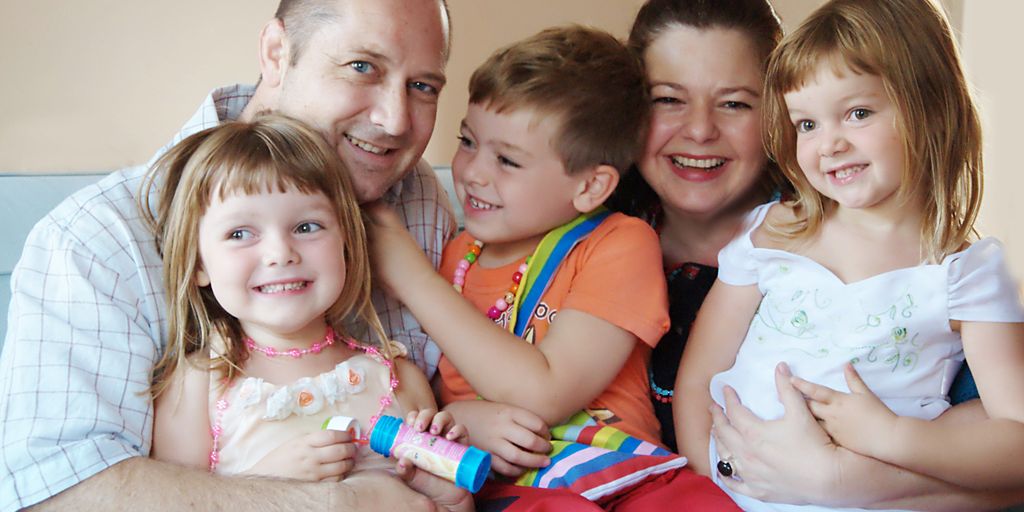
Children have so many things to navigate in today’s world, from self-esteem issues tied to social media to rising rates of anxiety and depression. Parenting in a way that helps your child learn to manage emotions in healthy ways is more crucial than ever before. Positive parenting is a balanced approach in which parents provide firm guidelines and warm support. More than a fad or trend, positive parenting is effective and helps you create a more connected and balanced relationship with your child.
Key Takeaways
- Understand the root causes of your child’s behavior to address issues more effectively.
- Nurturing physical attention, like hugs and cuddles, can significantly impact your child’s emotional well-being.
- Offering a variety of activities helps in the overall development of your child.
- Setting firm guidelines with warm support creates a balanced parenting approach.
- Modeling positive behavior is crucial as children often imitate their parents.
1. Get to the Root of the Issue
Remember, all behavior is communication. There is always a root reason why a child is acting out, whining, or upset. Ask questions. Be a stress detective and help your child get to the root of their frustration. The more you can help your child understand what they are trying to communicate, the more you can prevent the bigger meltdowns and tantrums because your child’s needs are being met. The iceberg analogy is so useful for understanding this.
Correct the Behavior While Accepting the Emotion
Misbehavior is always a symptom of a deeper issue, and when we can find what causes it, we can use the right strategies to correct it.
Approach with Inquisition
Try to avoid shame and accusations and instead take a look at the intentions and help to provide the guidance needed to grow and develop.
Work with Your Child and Set Clear Boundaries
2. Give Your Child Lots of Nurturing Physical Attention
Children thrive on physical affection. It seems simple, but children like hugs, cuddles, and holding hands. Show them the affection they desire. If they aren’t overly affectionate, that’s okay. Know how your child likes to be nurtured and comforted.
Benefits of Physical Attention
- Promotes emotional security
- Enhances parent-child bonding
- Reduces stress and anxiety
How to Provide Nurturing Physical Attention
- Offer hugs and cuddles regularly.
- Hold hands during walks or while crossing the street.
- Sit close to them during storytime or while watching TV.
Love and care are the greatest healers. If children do not receive positive attention from family, they may choose to seek out negative attention.
Respecting Boundaries
It begins with open communication, where children are encouraged to express their feelings about physical touch without fear of punishment or judgment. Always respect their comfort levels and preferences.
3. Offer a Variety of Activities
Children are more likely to misbehave when they are bored, so provide lots of engaging indoor and outdoor activities for your child such as reading, games, puzzles, science projects, nature walks, blanket tents, etc.
Provide Opportunities for Learning
Positive parenting includes providing your children with plenty of opportunities to learn new things. Allowing these chances of exploration enables children to learn how to get through experiences that may be challenging. But allowing them to struggle and work hard to succeed at something will boost their confidence and self-esteem.
Evidence-Based Social Skills Activities
Consider incorporating evidence-based social skills activities to help kids communicate, connect, empathize, read minds, cooperate, negotiate, and befriend. These activities can be both fun and educational, fostering essential life skills.
Parenting Group Therapy Activities
Explore effective parenting group therapy activities designed to strengthen family bonds and enhance well-being. These activities can provide a supportive environment for both parents and children to grow together.
4. Set Firm Guidelines with Warm Support
Setting firm guidelines while providing warm support is crucial for positive parenting. Clear rules and boundaries help children understand expectations and develop self-discipline. However, it’s equally important to balance these guidelines with warmth and understanding.
Establish Clear Rules
Sit down and have a family discussion on the family rules in your home. Let your child know what the consequences will be if they break the rules. Rules should be few, fair, easy to follow, enforceable, and positively stated (e.g., Stay close to dad in the store, use a pleasant voice, wash your hands before meals).
Be Consistent
In order for consequences to be effective, they must follow the 5 R’s of Fair & Effective Consequences. Simplify family rules and be firm. If it seems like you have 50 or so family rules, whittle down the list to what’s most important. Determine a consequence for each rule, make it clear to kids ahead of time of both the rules and consequences, and don’t give in.
Approach with Empathy
Try to avoid shame and accusations and instead take a look at the intentions and help to provide the guidance needed to grow and develop. For example, if your child makes a mess while trying to help, approach the situation with inquisition rather than anger. This helps in maintaining a positive atmosphere while still addressing the issue.
Positive parenting sets the foundation for mutual respect and a strong parent-child connection that lasts a lifetime.
5. Understand Your Child’s Emotional Needs
Understanding your child’s emotional needs is crucial for their overall development and well-being. Empathy is your friend in this journey. Walk a mile in your child’s shoes to better understand their feelings and reactions. This will help you find the extra dose of calm and patience needed to allow the process to unfold naturally.
Validate Their Emotions
You can implement this technique by asking your child what they feel and why. Validate their emotions by explaining that it’s not bad to feel a certain way—whether happy, mad, or sad. Then, address how to properly react when they’re feeling that way and why it’s important to behave appropriately. This will establish a positive coping skill that allows them to process their emotions and then consider appropriate behaviors to handle the situation.
Provide Opportunities for Learning
Working with your child to feel their emotions, express emotions, and solve problems will teach them worlds more and strengthen your relationship with your child. Imperfect behavior is part of growing up, and we must make mistakes to learn from them.
Think About It from Your Child’s Perspective
You can begin positive parenting approaches from the day your child is born. If your child cries, think about the root reason why. If you get upset, talk about your feelings. Apologize if you need to. Give them choices—do they spit out the peas or carrots more?
Talk to your children at every opportunity in a calm, loving voice. Talking is one of the best ways of connecting, along with physical affection. Listen. Don’t just hear the words, but understand the emotions behind them.
6. Use Positive Discipline Techniques
Positive discipline is about teaching important social and life skills in a manner that is deeply respectful and encouraging for both children and parents. Positive discipline techniques focus on guiding children rather than punishing them, which helps build a strong foundation for mutual respect and understanding.
Focus on Solutions
Instead of focusing on what your child did wrong, guide them towards finding a solution. This approach helps children learn problem-solving skills and understand the consequences of their actions.
Use Praise and Rewards
Positive discipline examples include using praise and rewards to reinforce good behavior. This method encourages children to repeat positive actions and helps them feel valued and appreciated.
Set Clear Expectations and Consequences
Children need to understand what is expected of them and what the consequences will be if they do not meet those expectations. Clarity in discipline is vital for helping children learn and grow.
Practice Active Listening
Take the time to listen to your child’s feelings and thoughts. This practice not only helps you understand their perspective but also shows them that their opinions matter.
Positive discipline teaches important social and life skills in a manner that is deeply respectful and encouraging for both children and parents.
Stay Calm and Centered
Avoid negative emotional reactions like anger or sarcasm. Instead, use short and mild verbal phrases to remind your child to focus, such as “L P.A.” for “let’s pay attention.”
Be Consistent
Consistency is key in positive discipline. Ensure that rules and consequences are applied fairly and consistently to help children understand the importance of following guidelines.
7. Create a Balanced Relationship
Creating a balanced relationship with your child is essential for their emotional and psychological development. Prioritize time with your child to strengthen your bond and show them that they are valued. This can be as simple as spending quality time together, giving them affection, and actively listening to them when they speak.
Be Present and Adaptable
Children change like the wind. What works one day may not work the next. Accept this and be willing to grow and change with your children. Just when you feel like you have them figured out, they will surprise you. Instead, listen, learn, and be present.
Take Care of Yourself
It is difficult to be a calm, relaxed parent if you are stressed, feeling anxious, or down. Try to find time every day—or at least once a week—to let yourself unwind or do something that you enjoy. Give yourself permission to take time for yourself. It makes a difference.
A balanced relationship requires effort and adaptability. Remember that all relationships take work, and your relationship with your child is no different.
8. Encourage Open Communication
Encouraging open communication with your child is a cornerstone of positive parenting. Open communication means engaging in an honest, transparent, and two-way dialogue that encourages children to express their thoughts and feelings. This practice helps build trust and mutual respect between you and your child.
Be Available and Attentive
One of the best practices of positive parenting is encouraging your kids to talk with you about their emotions, both the good and the bad. Being emotionally available to process tough things is crucial for them to learn how to deal with their emotions healthily.
Create a Safe Space
When you show your children you are available for them to talk about their emotions, it allows a safe space for them to process what they’re feeling and come to you when they need help. It teaches them that it’s okay to have the emotions they’re feeling and ways to address what they should do to solve the problem.
Practice Active Listening
Active listening involves giving your full attention to your child when they are speaking. This means putting away distractions, making eye contact, and responding thoughtfully. It shows that you value their thoughts and feelings.
Encourage Expression
Encourage your child to express themselves openly. This can be through words, drawings, or other creative outlets. The goal is to make them feel heard and understood.
Open communication fosters a relationship built on trust and empathy, which is essential for a healthy parent-child dynamic.
Simplify Your Explanations
Young children will respond better when you keep explanations simple and to the point. If you want to explain why a behavior is inappropriate, keep it concise and clear. This helps them understand without feeling overwhelmed.
Be Honest and Transparent
Being honest with your child about your own feelings and thoughts sets a good example. It shows them that it’s okay to be open and that honesty is valued in your relationship.
9. Be Consistent with Routines
Consistency in routines is crucial for fostering a sense of security and predictability in children. Routines encourage positive behaviour because they help children learn what’s expected of them. When routines are clear, children are less likely to test boundaries, reducing the likelihood of misbehavior.
Establish Clear Expectations
Creating a routine involves setting clear expectations. Schedules help parents maintain consistency in expectations, ensuring that children know what to anticipate throughout the day. This consistency helps in reducing conflicts and power struggles.
Involve Your Child
Let your kids help decide how the routine will go. For younger kids, write out the order of the routine using pictures or words and let them decorate it, then hang it where they’ll see it every day. This involvement makes them more likely to follow the routine.
Stick to the Routine
Once a routine is established, it’s important to stick to it. If everything is a fight, parents end up settling: more TV, skip brushing teeth for tonight, etc. Consistency is the best sign of good parenting. Chopping and changing the rules and consequences brings frustration and anger.
A well-established routine can be a powerful tool in managing challenging behaviour. It provides a framework that children can rely on, making them feel more secure and less anxious.
10. Model Positive Behavior

Children are like sponges, absorbing everything they see and hear. Be the example you want your kids to see. If you make poor choices in behavior, you are giving them permission to act in the same ways. Check in with yourself, and don’t lose it in front of the children.
Conclusion
Positive parenting is an effective way to provide children with kind and firm guidance. In today’s world, where children face numerous challenges such as self-esteem issues tied to social media and rising rates of anxiety and depression, it is more crucial than ever to adopt positive parenting techniques. By implementing the 10 tips discussed in this article, you can help your child learn to manage their emotions in healthy ways, fostering a closer and more connected relationship. Remember, it’s never too late to start using positive discipline and parenting strategies. The adjustment may take time, but the benefits of mutual respect and a strong parent-child connection will last a lifetime.
Frequently Asked Questions
What is positive parenting?
Positive parenting is a balanced approach where parents provide firm guidelines and warm support. It helps create a more connected and balanced relationship with your child.
How can I get started with positive parenting?
Regardless of where you are on your parenting journey, it’s never too late to start using positive discipline and positive parenting techniques. Use these strategies to get started and watch your relationship with your child become closer and more connected.
Why is nurturing physical attention important?
Children like hugs, cuddles, and holding hands. Showing them affection helps them feel loved and secure. Even if they aren’t overly affectionate, knowing how your child likes to be nurtured is crucial.
What are some effective positive discipline techniques?
Effective positive discipline techniques include setting firm guidelines with warm support, using time-ins instead of time-outs, and coaching children through their emotions instead of yelling.
How can I encourage open communication with my child?
Encourage open communication by creating a safe and non-judgmental environment where your child feels comfortable expressing their thoughts and feelings. Listen actively and validate their emotions.
Why is consistency with routines important in positive parenting?
Consistency with routines helps children feel secure and understand what is expected of them. It creates a structured environment where children can thrive and develop healthy habits.






